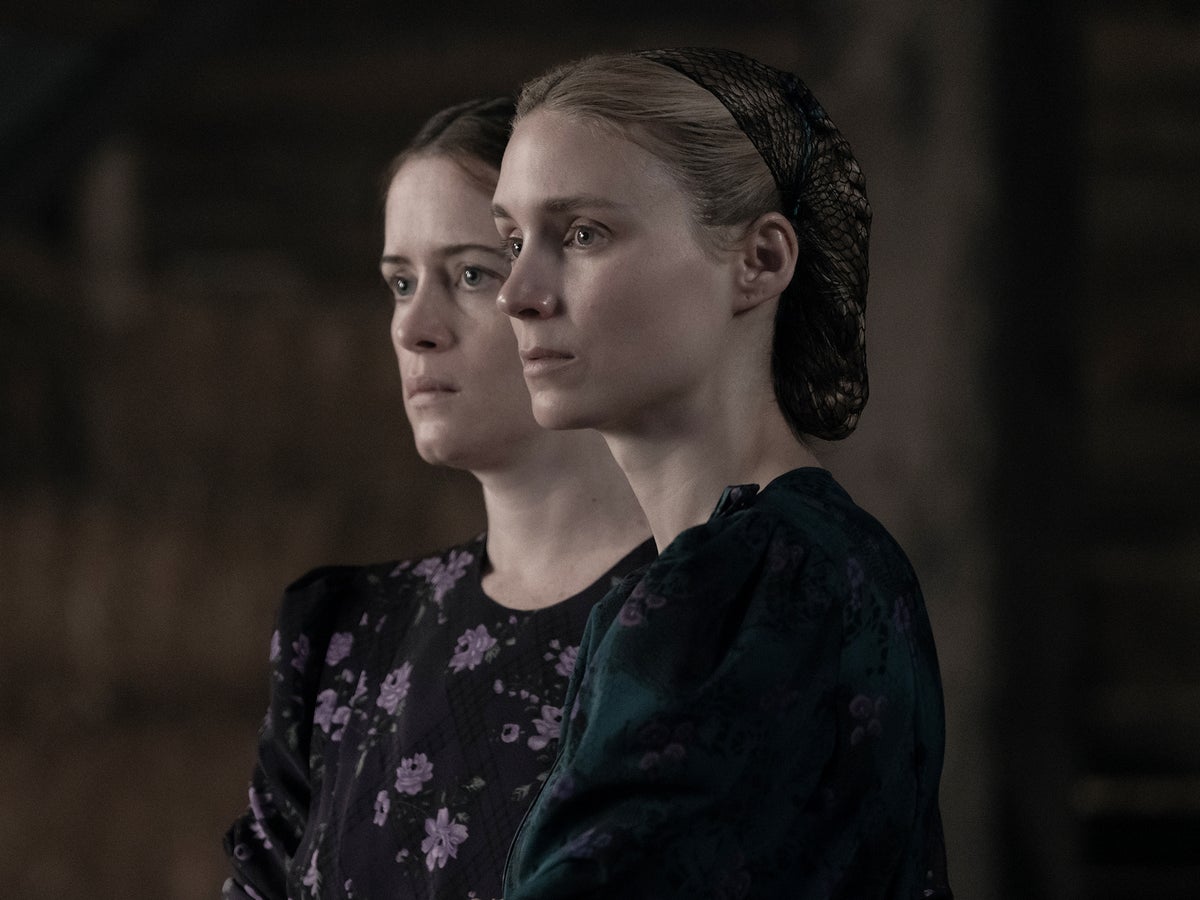
Maybe it doesn’t matter that the Oscar-nominated Women Talking won’t win Best Picture, even though it should. Nor, perhaps, does it matter that people will say that this film, about the rape of more than 100 women and girls, sounds depressing. Because even if Sarah Polley’s superlative work doesn’t get the plaudits or the audience it deserves, it should stand to have a far greater legacy. This is the kind of cinema that endures – not just as a great work of art (although it is that), but as something that moves us all forward.
For the past few years, the women in this isolated religious community have been drugged and assaulted in their sleep, and told the culprits were ghosts. Unbearably bleak, yes, and it actually happened – Miriam Toews wrote a novel about it in 2018, on which this film is based. The men have been imprisoned in a nearby town, awaiting bail, so the women meet in a purgatory-like hayloft to talk about what to do: nothing, stay and fight, or leave. Except what they are talking about, really, is how to reset or override a world engrained with violent patriarchal structures. August (Ben Whishaw), seemingly the only man in the whole place who isn’t a vile predator, takes minutes of the meeting as the women themselves cannot read.
The ensemble cast – with Rooney Mara, Claire Foy, Jessie Buckley and Frances McDormand among it – are on staggering form, and the subject matter is explosive. But Polley’s film is more like a hymn or a prayer, a gentle meditation on forgiveness, survival and how to make a better world. Hildur Guðnadóttir’s soundtrack shimmers through the scenes like a moving river, while Luc Montpellier’s bleached-out cinematography evokes a place where brutality has stripped away all of life’s colour. It’s set in 2010 but the women, in their homemade dresses and plaited hair, look lost in the past.
The trauma shows on the women’s bodies in different ways. There are bruised thighs. Lost teeth. Recurring panic attacks. Ona (Mara) is pregnant. Salome (Foy) must walk a day and a half to get her four-year-old daughter antibiotics. And in the same way that the physical impact differs, so do each of these women in their responses. Seething with rage, Salome has tried to kill one of the men. Ona is left with profound questions (if the women stay and fight, what are they fighting for?), while Mariche (Buckley), whose husband is an abuser, doesn’t want to make a fuss.
Lest it all sound too grim, Women Talking is actually very warm, with moments of humour and tenderness beaming through it like rays. The women laugh, sing together and sometimes disagree – but, through a kind of silent, sisterly understanding, always end up comforting one another. The journey to their trepidatious decision is propulsive and gripping.
Quietly, confidently and without fanfare, Polley has made the first piece of great post-MeToo cinema. What it depicts, and a homogenising hashtag doesn’t, is that there is no singular response to abuse. It’s also a reminder that change rarely comes without collective action. The women are trying to understand who they might be in a world where they are not subjugated, and that question is presented here as an opportunity. To those not interested in this conversation then Women Talking might sound, literally, like just a bunch of women talking. But for those who want to listen – and those who need to hear it – this is a film full of hope.
Dir: Sarah Polley. Starring: Rooney Mara, Claire Foy, Jessie Buckley, Ben Whishaw and Frances McDormand. 15, 104 minutes.
‘Women Talking’ is in cinemas from 10 February







